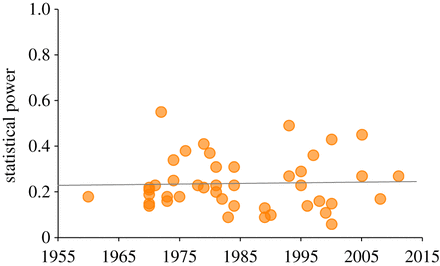British scientists told about how "British scientists" appeared

Experts from Exeter and Bristol University (Great Britain) decided to find out where the "British scientists" come from. Here we are talking, first of all, not about experts from various fields of science who work in the UK. The reason why many experts conduct research that does not have a special meaning, but which can be broadcast loudly, is considered. The results of the investigation of this situation were published by Andrew Higginson and Marcus Munofo in the journal PLoS Biology .
According to the authors of the project, the main cause of the incident is the system of grants that operates in the country. She encourages researchers to give their projects loud names and talk about no less loud results. Moreover, these results, as a rule, have no value for science in general, or are not very valuable.
The authors of the study say that scientists should approach the study of various processes objectively, trying to strengthen and build on the building of scientific knowledge. “However, scientists are also people, and work in organizations where everything is aimed at getting money changes the way of thinking and behavior even honest and conscientious specialists. This process takes place equally consciously and unconsciously, ”experts say .
')
Since the 1980s, scientists have been trying to add “novelty” to the titles of their works. At the same time, only a small number of publications is important for science. Now more and more scientists are trying to devote attention not to pure science, but to their careers. Many seek to publish as many works as possible, which makes them more famous, and their career paths are more rapid. Young professionals, looking at the principles of work of experienced comrades, adopt their work model. This can be called adaptive behavior - a similar phenomenon is widespread in the world of living nature and plays an important role in evolution.
In his work, Higginson and his colleague Markus Munafo used the methods of mathematics and statistics. They decided to find out the success of the grant applications and their results in the form of publications in scientific journals. At the very beginning of the study, the authors suggested that scientists who work with grants may use some general principle for their projects, which allows them to receive additional funds. It is interesting that many researchers, consciously or not, try to adjust their methods of work to the methods of evaluation of the projects under consideration by the funds that provide grants. In general, it is obvious.
In order to follow the process from writing a proposal to receiving a grant by “grant eaters”, mathematicians studied the principles of the work of grant agencies in the UK and Australia. The scientists then used the data to build a computer model where the “scientists” are trying to get as many grants as possible from the grant committee. As it turned out, researchers who offer small-scale projects with big words like “innovative”, “newest”, etc., receive the most money. The problem with such projects in reality is that their results are poorly verified, and for the most part, they are completely adapted to the original tasks. The effectiveness of the scientists involved in such projects is very low. Only 10-40% of the results of such projects can be repeated. Consequently, most of the money is spent in vain and leaves no positive mark on science. "
According to scientists from the UK, you can solve the situation. To do this, it is necessary to reduce the number of supported small projects, sending funds to support large and medium-sized projects. In addition, the commissions need to respond not to the sensationalism of the proposed development, but to the methodology and results of such work.

The average statistical power of publications published in scientific journals from 1960 to 2011
Back in 1963, Jacob Ken, a psychologist at New York University, found that, according to statistics, the result expected by the researcher is manifested in only 20% of the experiments performed. But in fact, almost all scientists point to a positive result of their research. In other words, the authors simply do not talk about failure, in some cases distorting the results of their research . Paul Smaldino of the University of California and Richard Mac Elres of the Max Planck Society for the Institute for Evolutionary Anthropology proved that the authors of scientific research still talk about their successes by concealing their defeats.
Smaldino and Richard Mac Elres believe that only a firm decision of foundations and scientific organizations can not provide funds to scientists and laboratories, who previously published unverified results of their research. Such organizations often give their expectations for a positive result. True, this is rather difficult to do, since the grant system has existed for a long time, and its principles have taken root in the minds of scientists.
For this reason, those experts give more work and faster progress on the career ladder who give their works loud names (the notorious “our technique allows us to defeat cancer”) and publishes a large amount of materials. Those organizations who try to carefully verify their results are published much less frequently and are, so to speak, in the “shadow”.
Source: https://habr.com/ru/post/399033/
All Articles